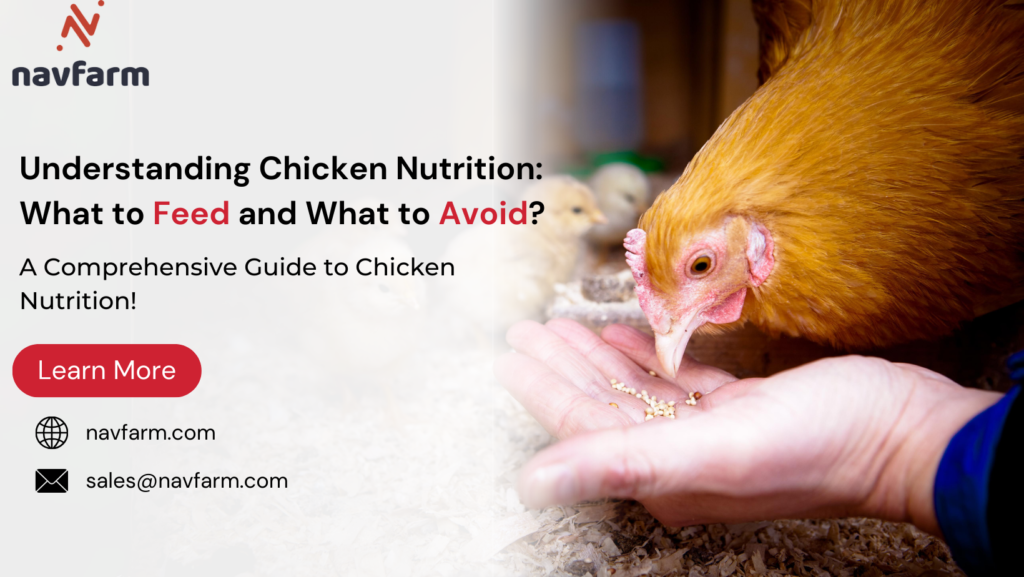
Ensuring proper nutrition is essential for the health and productivity of your chickens. From supporting egg production to maintaining overall well-being, a well-balanced diet plays a crucial role. In this blog, we’ll delve into the basics of chicken nutrition, exploring what to include in their diet and what to steer clear of.
The Basics of Chicken Nutrition:
- Protein: Chickens require protein for muscle development, feather growth, and egg production. Ensure that your chicken feed contains around 16-20% protein, especially for laying hens.
- Carbohydrates: Carbohydrates provide energy for daily activities. Corn and grains are good sources, but a well-balanced feed is crucial to prevent obesity and maintain energy levels.
- Fats: Fats are essential for nutrient absorption and energy storage. Include healthy fats in their diet, such as sunflower seeds or flaxseeds, to promote glossy feathers and overall health.
- Vitamins and Minerals: Provide a variety of fruits, vegetables, and greens to ensure your chickens get essential vitamins and minerals. Calcium is particularly important for laying hens to maintain strong eggshells.
What to Feed Your Chickens:
- Commercial Chicken Feed: High-quality commercial chicken feed is formulated to meet the specific nutritional needs of chickens at different life stages. Choose feeds appropriate for chicks, layers, or broilers based on your flock’s composition.
- Grains and Seeds: Incorporate a mix of grains and seeds like corn, barley, and sunflower seeds to diversify their diet and provide essential nutrients.
- Vegetables and Fruits: Offer a variety of fresh vegetables and fruits, such as leafy greens, carrots, and berries. These provide vitamins, minerals, and natural antioxidants.
- Insects and Worms: Chickens are natural foragers. Allowing them access to insects, worms, and other small creatures not only supplements their diet but also satisfies their natural instinct to peck and scratch.
What to Avoid:
- Processed and Junk Food: Avoid feeding chickens processed or junk food, as it lacks essential nutrients and may lead to health issues.
- Salty and Sugary Treats: Excessive salt and sugar can be harmful to chickens. Limit treats like chips and sweets, as they can disrupt the balance of their digestive system.
- Moldy or Spoiled Feed: Always check the feed for signs of mold or spoilage, as these can be toxic to chickens.
- Toxic Plants: Be aware of toxic plants and ensure that your chickens do not have access to them. Some common examples include nightshade, oleander, and azaleas.
Also Read : Microsoft Dynamics 365 for Aquaculture
Conclusion
Maintaining a healthy and well-balanced diet for your chickens is essential for their overall well-being and productivity. By providing a mix of commercial feed, grains, fresh produce, and occasional treats, you can ensure that your flock receives the nutrients they need to lead happy and healthy lives. Always monitor their health, adjust their diet as needed, and consult with a veterinarian for personalized advice on chicken nutrition.
